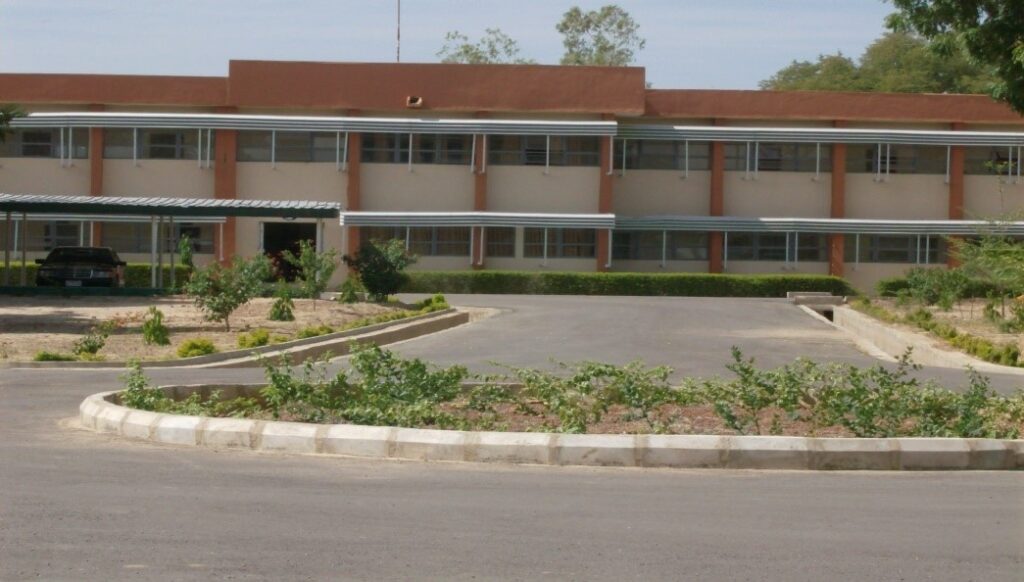About LCRI
Background
The Federal Government of Nigeria established National Agricultural Research Institutes (NARIS) under the Federal Ministry of Agriculture and Rural Development to develop modern and dynamic agricultural research system with the aim of increasing agricultural productivity, alleviate poverty and create jobs.
Lake Chad Research Institute (LCRI) is one of the Agricultural Research Institutes under the Federal Ministry of Agriculture and Rural Development. The Institute was established by the Research Institute (Establishment Act) Order 1975. However, the actual physical existence began in 1976, with the location of its headquarters at kilometer 5, along Gamboru-Ngala Road, Maiduguri, Borno State.
The Institute currently operates under the supervision of the Agricultural Research Council of Nigeria (ARCN), which was established to coordinate and regulate agricultural research, training and extension in the Nigerian National Agricultural Research Systems.
At its inception, the Institute established stations at Baga, Malamfatori and Ngala in Borno State. As it activities expanded, the Institute established experimental sites at Biu, Damboa and New-Marte in Borno state; Dadinkowa and Deba in Gombe state; Gembu in Taraba state; Uba in Adamawa State, Gashua in Yobe State; Jos in Plateau State and Obudu in Cross River State, over the years.
The Institute had multidisciplinary mandate of conducting research in crops, fisheries, livestock, Agro-forestry, wildlife and public health. However, following a re-appraisal of the mandates and functions of National Research Institutes in 1987, the Lake Chad Research Institute became a crop based research Institute and was charged with a new research mandate.
LCRI has three stations in Baga, Malamfatori and Ngala in Borno State, and seven experimental sites: Biu and New Marte in Borno State, Dadin Kowa in Gombe State, Kadawa in Kano State, Hadejia in Jigawa State, Jos in Plateau State and Gembu in Taraba State.
Vision
To provide improved agricultural technologies through research and development for the farmer, and to make farming a business of economic benefit toward attaining national food security.
Mission
To conduct developmental research in close collaboration with stakeholders through genetic overhaul of the mandate crops, realignment of production to modern system and encouragement of industrial linkage in the total farming systems in the zone.

Mandates
Following the re-appraisal of the mandates and functions of National Research Institutes in 1987, the Lake Chad Research Institute became a crop-based research Institute and was charged with the following research mandates as reviewed in 1994:
a. The genetic improvement of Barley, Millet and Wheat.
b. Investigation of the problems of all agricultural food crops grown in the broad ecological zone covered by Adamawa, Borno, Taraba and Yobe and later Bauchi and Gombe States; and in particular,
i. Crops agronomy including cultivation, planting and harvesting methods.
ii. Adaptation of introduced or improved crop varieties;
iii. Development and testing of pest and disease control measures,
iv. Farming system including integration of livestock, tres crops and stro forestry into the production systems
v. Socio economic problems of the farmers in the agricultural system
vi. Soil management including problems of soil structure, soil fertility and soil stabilization:
vii. Irrigated crops production:
viii. Limited processing and preservation of crops listed under (a) above,
ix. Simple preservation, storage and processing in the rural setting of the crops listed in (a) above
x. Design and fabrication of simple agricultural implements and equipment,
c. Any other problems related to (a) and (b) above.
d. And also:
i. Carry out agricultural extension research liaison with relevant Federal and State Ministries, primary agricultural producers, Industries and any other users of research results within the zone in collaboration with NAERLS;
ii. Organize technical and vocational courses in agricultural crop production and related fields within the zone;
iii. Provide laboratory and other technical services to farmers, agro-based industries and others needing these services;
iv. In carrying out its mandate, the Institute shall collaborate with all other relevant Research Institutes and Organizations.
Collaborations
The Lake Chad Research Institute in fulfillment of its research mandates collaborates with a number of National and International Organizations. Such include:
- University of Maiduguri
- Institute of Agricultural Research (IAR) Zaria
- National Cereals Research Institute (NCRI) Badeggi
- National Stored Products Research Institute (NSPRI) Ilorin
- National Food Reserve Agency (NFRA) Abuja
- National Agricultural Extension & Research Liaison Services (NAERLS) Zaria
- All Agricultural Development Programmes of the mandate states
- Directorate of Technical Cooperation in Africa (DTCA) Abuja
- Flour Milling Association of Nigeria (FMAN)
- Nigerian Breweries Plc
- Orlam Nigeria Plc
- Seed-Co Nigeria
- Jigawa Research Institute (JRI), Kazaure
- Nigerian Communication Commission (NCC)
The Institute also collaborates with the following International Institutions:
- International Crops Research Institute for the semi-arid tropics (ICRISAT)
- International Center for Agricultural Research in the Dry Areas (ICARDA)
- International Center for Maize and Wheat Improvement (CIMMYT) Mexico
- International Institute for Tropical Agricultural (IITA) Ibadan, Nigeria
- International Board for soil Research and Management (IBSRAM)
- BMZ Germany
- Syngenta Foundation
- INTSORMIL-USA
